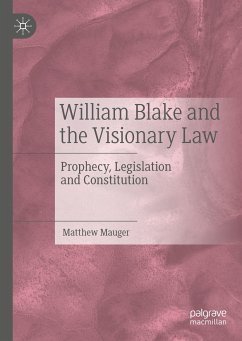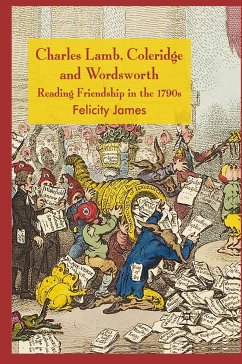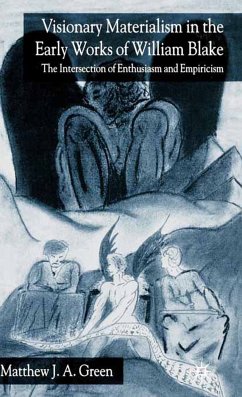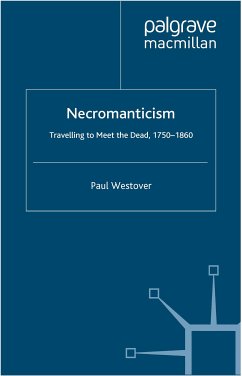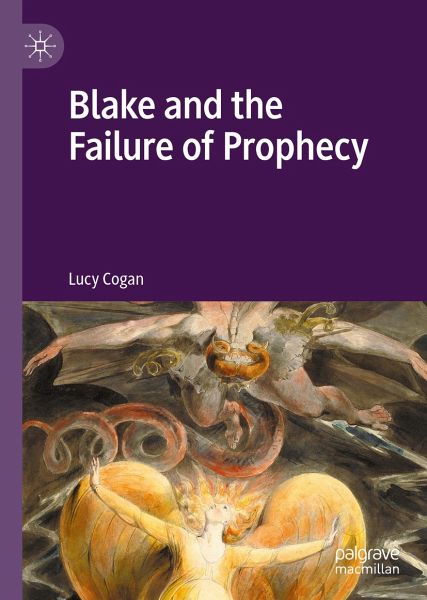
Blake and the Failure of Prophecy (eBook, PDF)
Versandkostenfrei!
Sofort per Download lieferbar
80,95 €
inkl. MwSt.
Weitere Ausgaben:

PAYBACK Punkte
40 °P sammeln!
This monograph reorients discussion of Blake's prophetic mode, revealing it to be not a system in any formal sense, but a dynamic, human response to an era of momentous historical change when the future Blake had foreseen and the reality he was faced with could not be reconciled. At every stage, Blake's writing confronts the central problem of all politically minded literature: how texts can become action. Yet he presents us with no single or, indeed, conclusive answer to this question and in this sense it can be said that he fails. Blake, however, never stopped searching for a way that prophe...
This monograph reorients discussion of Blake's prophetic mode, revealing it to be not a system in any formal sense, but a dynamic, human response to an era of momentous historical change when the future Blake had foreseen and the reality he was faced with could not be reconciled. At every stage, Blake's writing confronts the central problem of all politically minded literature: how texts can become action. Yet he presents us with no single or, indeed, conclusive answer to this question and in this sense it can be said that he fails. Blake, however, never stopped searching for a way that prophecy might be made to live up to its promise in the present. The twentieth-century hermeneuticist Paul Ricoeur shared with Blake a preoccupation with the relationship between time, text and action. Ricoeur's hermeneutics thus provide a fresh theoretical framework through which to analyse Blake's attempts to fulfil his prophetic purpose.
Dieser Download kann aus rechtlichen Gründen nur mit Rechnungsadresse in A, B, BG, CY, CZ, D, DK, EW, E, FIN, F, GR, HR, H, IRL, I, LT, L, LR, M, NL, PL, P, R, S, SLO, SK ausgeliefert werden.





